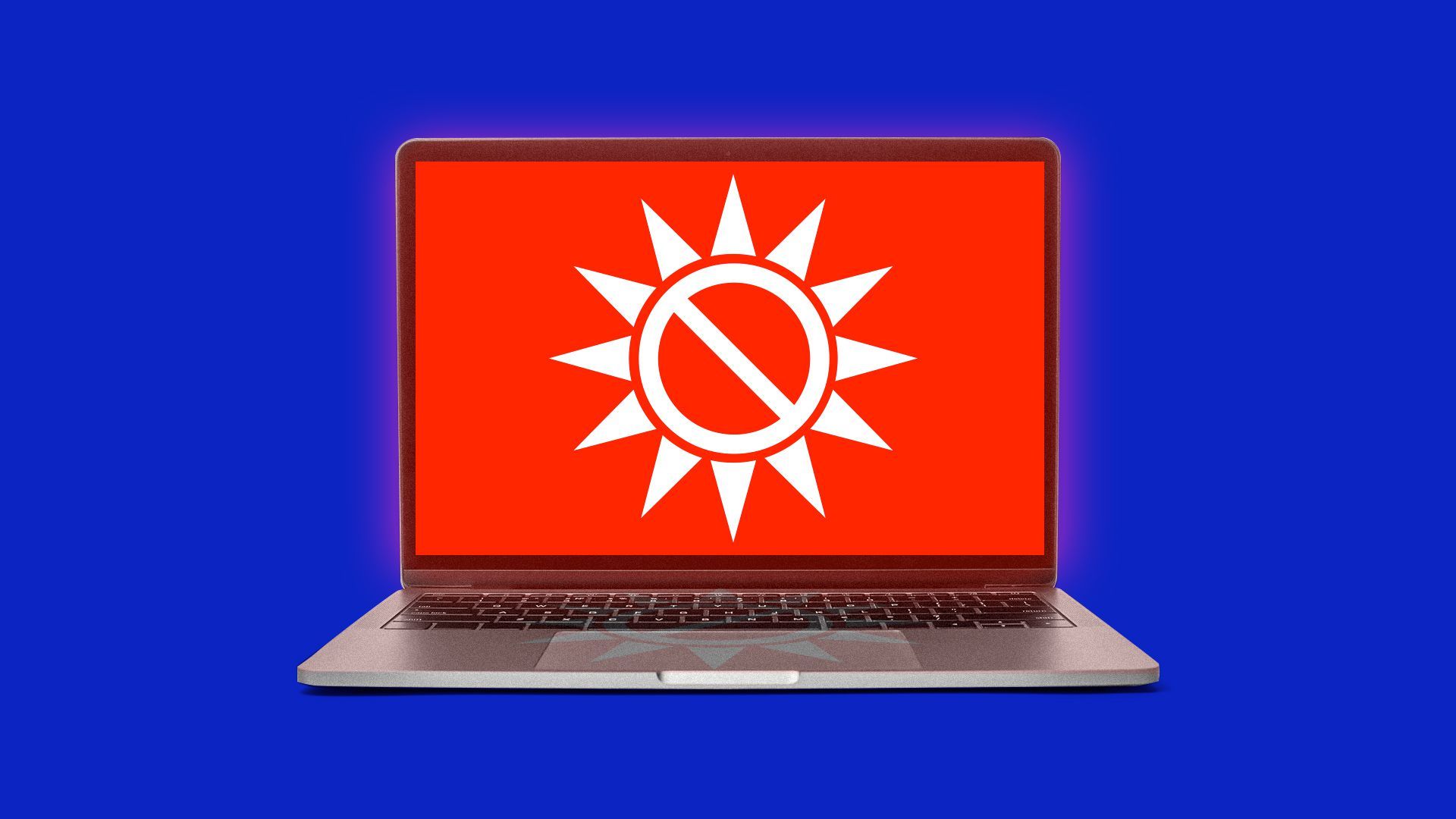Taiwan targets Chinese tech
Add Axios as your preferred source to
see more of our stories on Google.

Illustration: Aïda Amer/Axios
Taiwan has recently issued a series of restrictions on Chinese tech companies, from streaming apps to e-commerce.
Why it matters: Critics say that recent U.S. restrictions on Chinese tech companies stem from Trumpism rather than legitimate concerns. But Taiwan is spooked by Chinese tech as well.
- The moves come amid a warming U.S.-Taiwan relationship, and as both countries grow more alarmed about Beijing's goals in the region.
What's happening: On Aug. 24, Taiwanese authorities ordered e-commerce website Taobao Taiwan to register as a Chinese company, a designation that in Taiwan comes with tougher regulations, rather than as a foreign company.
- Taiwanese regulators said that Taobao Taiwan, which is owned by a British-registered company, is ultimately controlled by Chinese e-commerce giant Alibaba, which owns Taobao in mainland China.
- Last week, Taiwan also issued new rules that prohibit Chinese streaming platforms Tencent and iQiyi from operating there.
The big picture: Taiwan's proximity to China, its tiny relative size, and the knowledge that the Chinese Communist Party aims to annex it has made some of the self-governing democracy's policies appear prescient.
- Taiwan excluded Huawei from its digital infrastructure back in 2014. Taiwan's digital minister, Audrey Tang, has called Huawei a "Trojan horse."
- Young Taiwanese occupied the nation's legislature in 2014 in protest of a potential trade pact with China, concerned about the political leverage that Beijing could wield if the two economies deepened their ties. Concerns about China's use of economic power to interfere in democratic politics did not become widespread in Western countries until around 2018.
Context: Taiwan's recent moves come amid growing concern in several countries about Chinese tech companies.
- President Trump recently issued an executive order calling for the forced sale of Chinese video app TikTok to a non-Chinese company and prohibiting transactions with Chinese messaging app WeChat.
- Several European countries, after U.S. urging, have stated that they will limit or exclude Chinese telecom giant Huawei from their 5G networks.
- India, embroiled in a border dispute with China, has banned dozens of Chinese apps.
Yes, but: It's not clear what major national security concerns would be alleviated by the Trump administration's executive order on WeChat. And vague wording has left Chinese people abroad worried about what new barriers they may face when trying to stay in touch with loved ones back in China.
- In addition, the Trump administration's tendency to mix politics and business has muddied the waters, fueling speculation that Facebook founder Mark Zuckerberg's private warning to the administration last October influenced the administration's decision to investigate TikTok — which is a direct Facebook competitor.
The bottom line: The Taiwanese government views Chinese tech companies as a serious problem deserving of regulation, scrutiny and, if necessary, exclusion.
